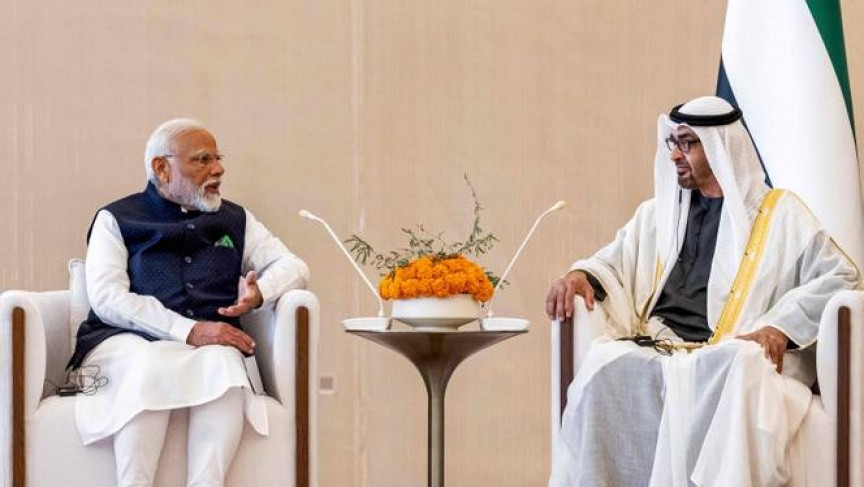14/02/2024
14/02/2024

INDIA, Feb 14: India and the United Arab Emirates (UAE) have inked a pivotal agreement on Tuesday to establish a trade corridor aimed at linking Europe with India through parts of the Middle East via sea and rail. This ambitious plan, backed by the United States and the European Union, marks a significant step towards enhancing regional connectivity.
The framework agreement, announced during Prime Minister Narendra Modi's visit to the Gulf state, was disclosed through a statement by the Indian foreign ministry. However, specific details regarding the agreement were not immediately made public.
The Indian foreign ministry's statement emphasized that the agreement builds upon previous understandings and cooperation, highlighting the potential to further strengthen ties between India and the UAE while fostering regional connectivity.
First introduced last September on the sidelines of the G20 summit in New Delhi, the corridor envisages extending from India across the Arabian Sea to the UAE and through Saudi Arabia, eventually connecting through Jordan and Israel to Europe. Notably, the statement did not mention any other countries apart from India and the UAE.
The signing of the India-Middle East Economic Corridor agreement comes amidst ongoing conflicts in the region, including the protracted war in Gaza, which has disrupted plans for further integration between Israel and its Arab neighbors. Saudi Arabia, a key player in the region, has halted normalization plans.
UAE President Sheikh Mohamed bin Zayed al Nahyan, with whom Modi shares a close relationship, expressed optimism about the prospects of cooperation with India during his meeting with the Indian leader. Despite maintaining diplomatic relations with Israel since 2020 under the Abraham Accords, the UAE has also been critical of Israel's actions in Gaza, calling for a ceasefire.
The framework agreement between India and the UAE not only signals their commitment to establishing the corridor but also has broader implications, potentially challenging China's global trade infrastructure and connectivity strategy, particularly its Belt and Road Initiative.
The signing of the agreement coincides with heightened tensions in the region, including attacks by Yemen's Houthi movement on shipping vessels in the Red Sea, citing opposition to Israel's actions in Gaza. These attacks pose a threat to trade routes via the sea.
In addition to the corridor agreement, India and the UAE also exchanged bilateral investment treaties and cooperation agreements covering electrical interconnection, trade, and digital infrastructure.
Modi's visit to the Gulf state underscores the importance of strengthening ties with one of India's key trading partners. During his visit, he is scheduled to address the Indian diaspora and attend a summit in Dubai before inaugurating the first stone-built Hindu temple in the Middle East in Abu Dhabi. This visit marks Modi's seventh trip to the UAE since assuming office nearly a decade ago, reflecting the significance of the relationship between the two countries.


